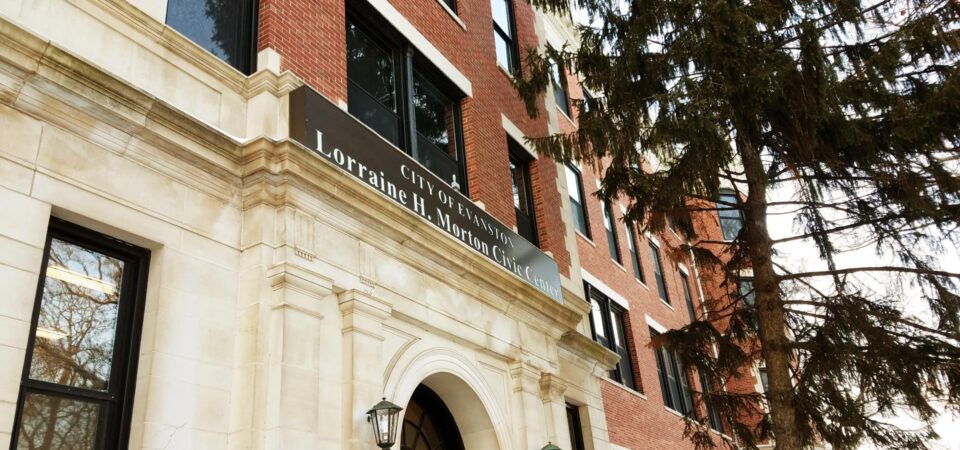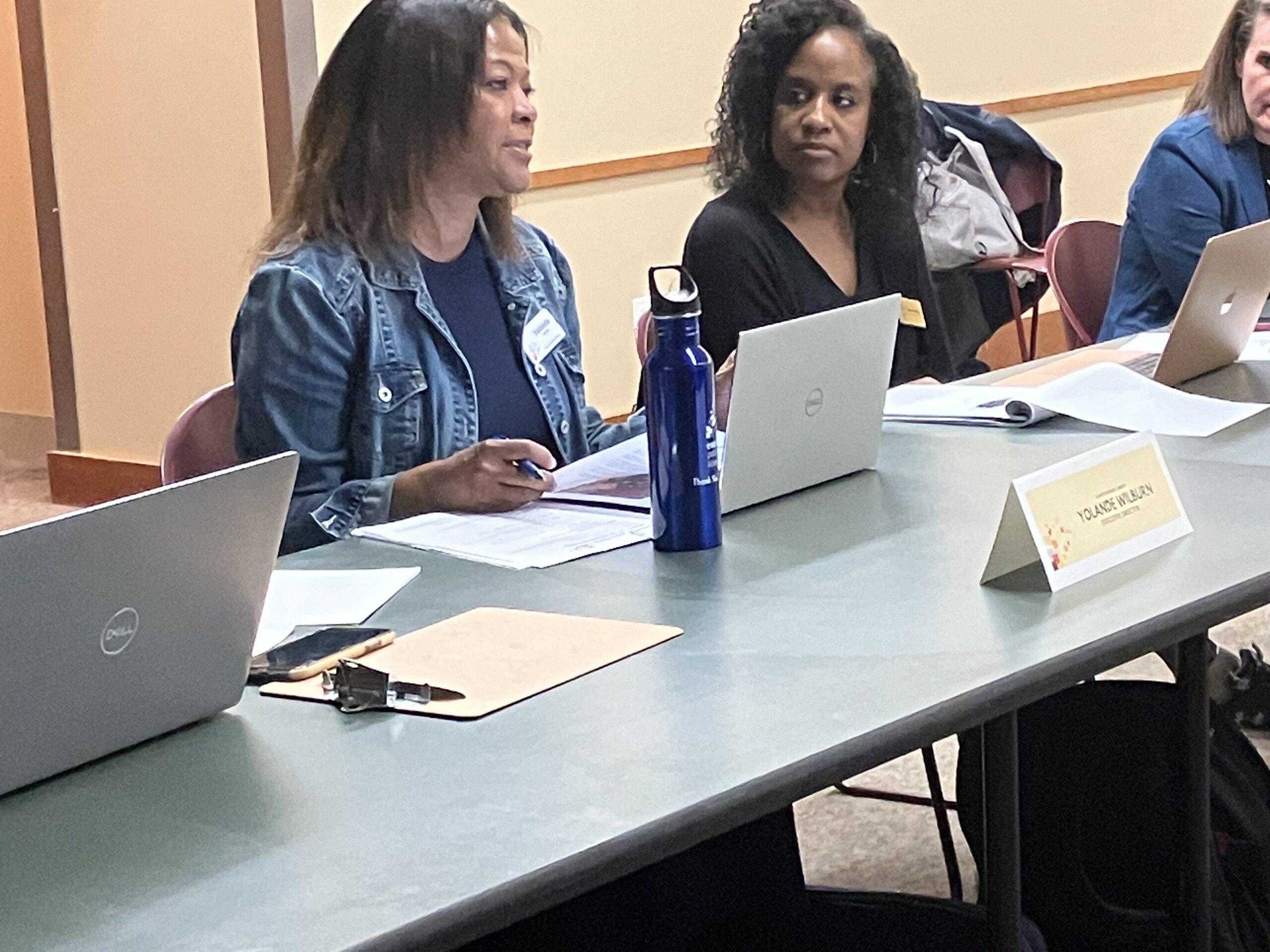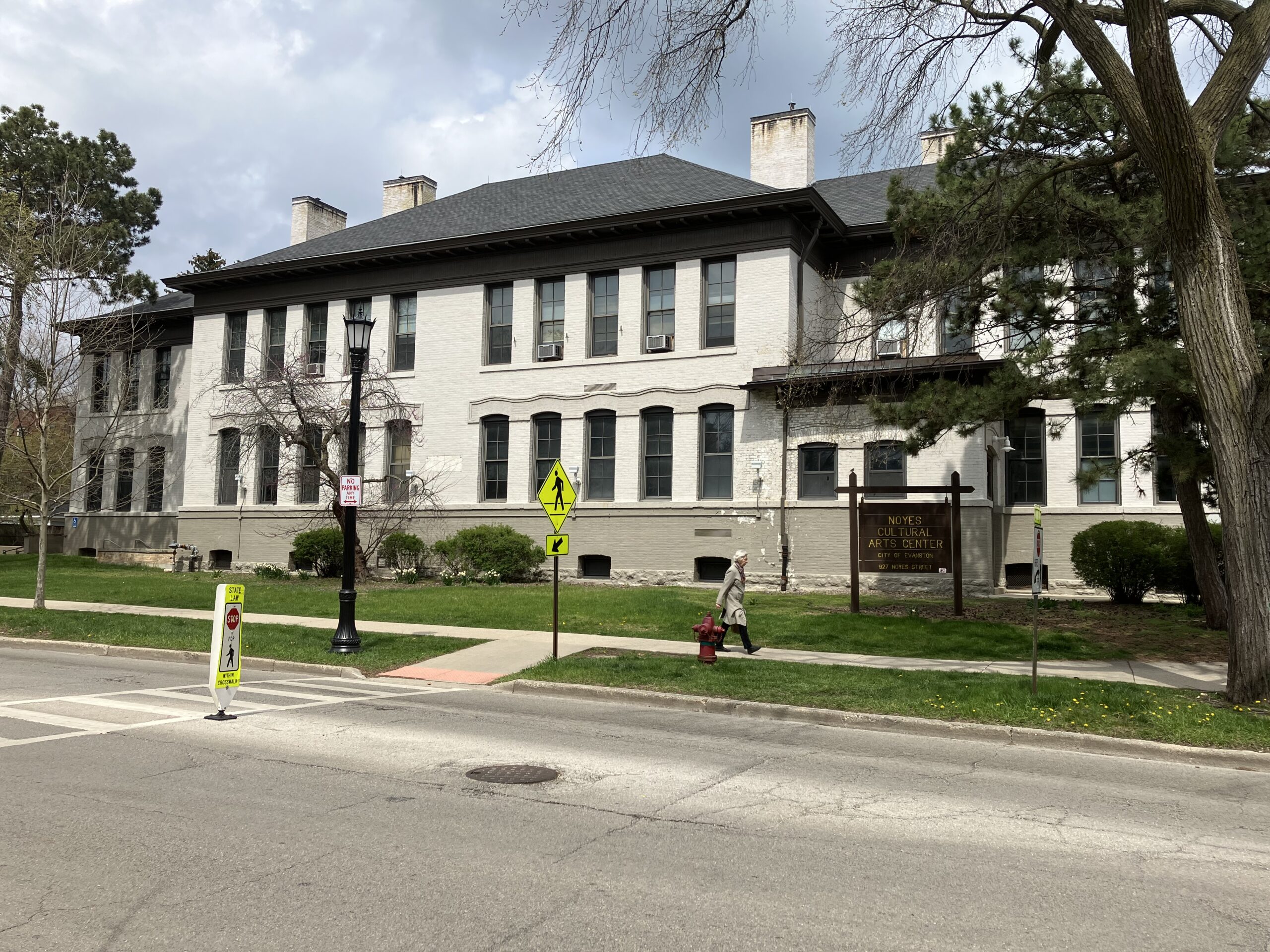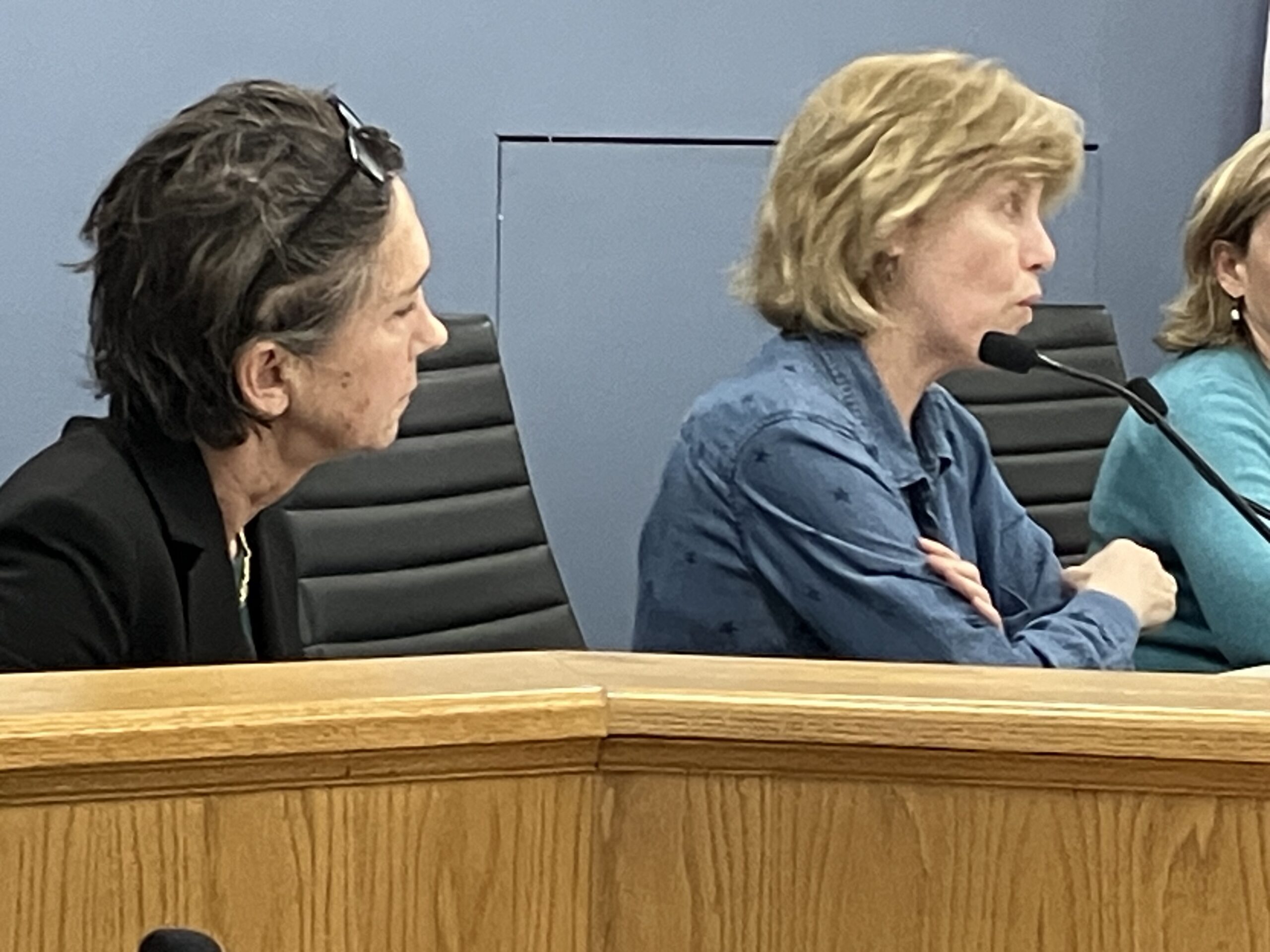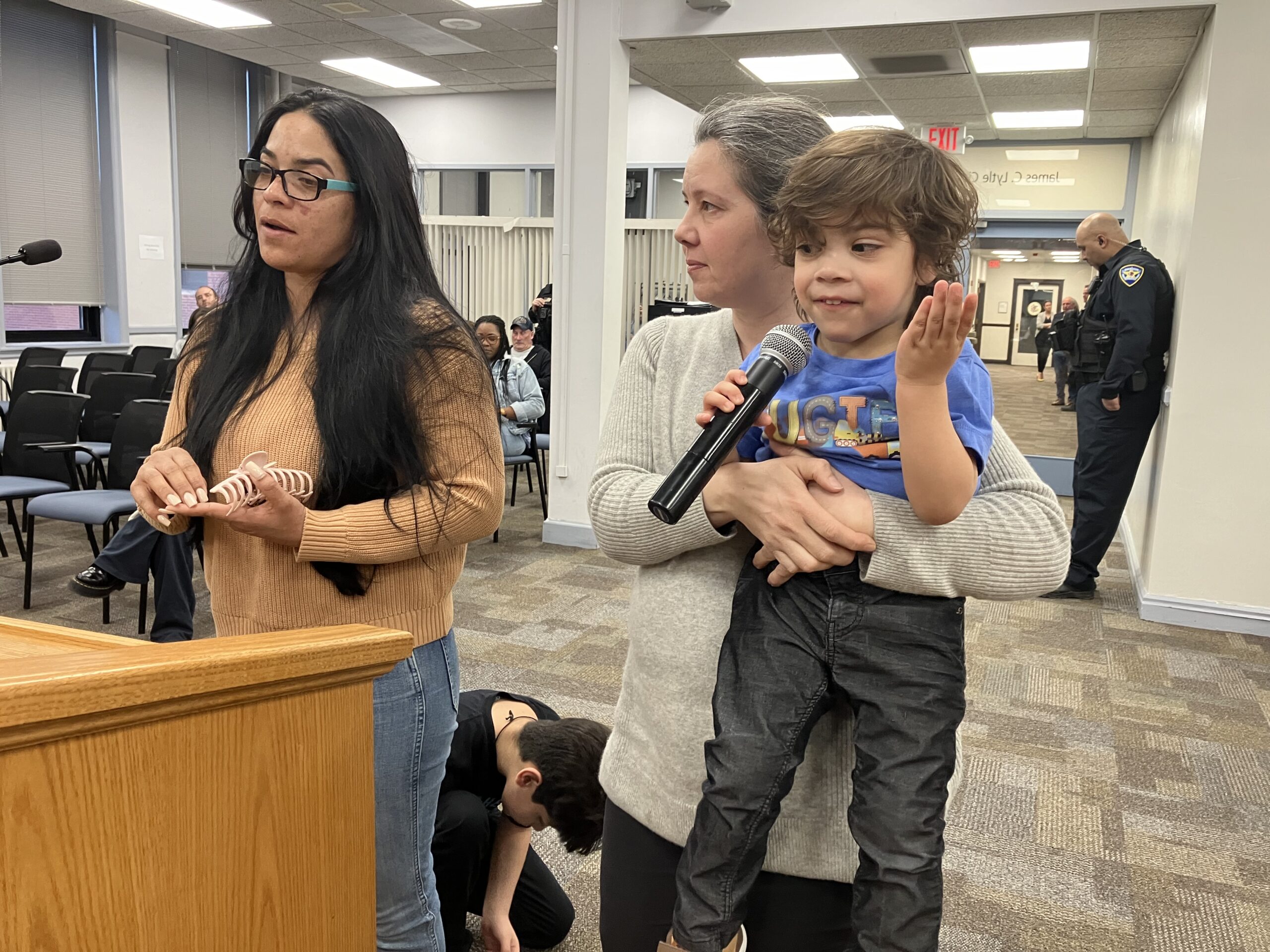By Bob Seidenberg
The state attorney general’s office has ruled that the Evanston City Council violated the Open Meetings Act last year when it authorized an exclusive agreement with a real estate firm to be the city’s broker in its exit from the Civic Center.
The office issued a binding opinion Friday in favor of resident Mary Rosinski and found that the city was in violation of the state Open Meetings Act when it authorized an exclusive agreement with Jones Lang LaSalle Midwest, a unit of the commercial real estate firm JLL, in closed session at its Oct. 16 meeting.
The agreement made JLL the city’s exclusive real estate broker to identify and evaluate the city’s acquisition of office space, as well as identify a workplace strategy and the disposition of Evanston’s current Civic Center site at 2100 Ridge Ave.
“The agreement with JLL was not preliminary or tentative,” the Attorney General’s Public Access office ruled. “Behind closed doors the City Council agreed to bind the City to an agreement with a particular firm that requires, among other things, a potential expenditure of hundreds of thousands of dollars if the Civic Center is sold.
Under the ruling, the City Council is directed to take immediate action to comply with the opinion by reconsidering and taking final action on the exclusive representation agreement with JLL in the open session portion of a meeting as soon as practical.
City officials are expected to issue a response Monday.
Rosinski, who learned of the office’s opinion on Sunday, pursued the issue with the attorney general’s office after warning city officials that they were in violation.
‘Rushed and secretive process’
The ruling “confirms my and many other residents’s concerns about the rushed and secretive process to sign a long term lease for the ‘temporary relocation’ of the Civic Center,” she said in a statement Sunday. “I’m glad the Attorney General’s office holds the city officials and staff, who drove this secretive process, accountable.”
Council Member Clare Kelly (1st Ward) called the process used in the Civic Center decision “legally flawed” and said it “needs to start over with an RFP [request for proposal] for bids to represent the city. Any lease now being considered should be shelved, until a new representation agreement is awarded.”
The RoundTable had revealed in a Dec. 22 story that officials were exploring the relocation of city offices from the Morton Civic Center to a downtown site and had engaged JLL to facilitate lease negotiations for office space in downtown Evanston.
Rosinski, a longtime community member and real estate agent, submitted a request for review Jan. 9 with the Public Access Bureau of Illinois Attorney General Kwame Raoul’s office, alleging the council improperly took final action to authorize an exclusive agreement.
She stated that “the Civic Center has been a controversial issue for years,” with a long-awaited report on options for the building still pending from another consulting firm, AECOM. She argued that “decisions like this fail the transparency test.”
The city meanwhile had maintained the contract did not specify a percentage if a sale of city property occurs and that any sale of property and the fees associated with that sale would be approved in open session by the Evanston City Council.
The state’s Open Meetings Act enshrines the public’s right to be present when public bodies take action by providing that ‘no final action may be taken at a closed meeting’ and that ‘final action shall be preceded by a public recital of the matter being being considered and other information that will inform the public of the business being conducted.”
City defends action
Alexandra Ruggie, the city’s interim corporation council, had defended the agreement with JLL in response to the office’s review of Rosinski’s charge. She argued that under City Code, the city manager may execute agreements on behalf of the city for amounts under $25,000.
Further, while the contract with JLL specifies a percentage if a sale of city property occurs, she argued, “Any sale of City property and the fees associated with that sale would be approved in open session by the Evanston City Council,” according to one of the documents the Public Access Bureau included in its opinion.
Reviewing the minutes of the Oct. 16 meeting, including the executive session, the Public Access Bureau confirmed that the city manager expressly sought the City Council’s proposed exclusive agreement with JLL.
After the City Council discussed whether to authorize the exclusive representation agreement, the mayor polled the members of the City Council on that question, the bureau found. “A majority of the City Council approved entering the exclusive representation agreement with JLL and the Mayor stated that City staff had the direction to execute the agreement,” the review by Public Access Bureau found.
“The Council then returned to open session and voted to adjourn without further considering or acting on the agreement,” the review found.
Final vote must be open
“The Open Meetings Act does not prohibit a public body from polling its members in closed session whether to authorize an official action, as long as it follows up with a final vote in open,” the review emphasized.
The city provided “no legal or factual support” for its argument that final action is not necessary when the decision being approved allegedly will cost less than $25,000, the office found.
“OMA [Open Meetings Act], by its plain language, places no monetary parameters on final actions, nor does the Act authorize public bodies to privately make decisions that do not involve payments of public funds. There is no basis for a reviewing body to read such a limitation into the statute,” the office said.
Officials didn’t hold their first public discussion of JLL’s study of the issue until a Jan. 22 meeting at which council members approved staff’s recommendation that the city execute a lease at 909 Davis St. to house city functions.
‘That’s how the law works,’ says Biss
Kelly, one of three members to vote against the proposal, charged at that Jan. 22 meeting that the council was violating the state’s Open Meetings Act, holding discussion of the proposal before the meeting in closed session with the real estate consultant, which holds an exclusive contract and stands to gain “hundreds of thousands of dollars.”
Mayor Daniel Biss, meanwhile, maintained the city went into an executive session but didn’t make a binding decision, which would have been a violation.
“That’s how the law works,” he said at the meeting, maintaining “it’s not within a million miles of an OMA [Open Meetings Act] violation.”
Biss did not respond to a phone message Sunday night. City Manager Luke Stowe said the city would issue a response to the ruling Monday.
Kelly said “I am pleased with the AG’s binding opinion; however, I continue to be extremely disappointed in the poor decisions and lack of transparency demonstrated by our city government.
Kelly: Decision was ‘rushed’
“The decision to vacate the Civic Center was rushed and premature,” she said. “The City Council owes the residents an open decision-making process, with public input, as to whether or not there is truly an urgent need to ‘temporarily’ relocate the Civic Center and lease downtown office space while deliberate future plans for the Civic Center.”
Like Rosinski, Dave Ellis, a retired Evanston firefighter and paramedic and activist, spoke to council members at the Jan 22 meeting to warn about a violation of the Open Meetings Act.
“The city has a long history of being cited for violating the act,” he said. “The Open Meetings Act is a foundation of good government,” he told council members during public comment. “If it is not followed it corrupts all levels of good government. I’m a shareholder in the city and I do not want to pay for litigation for not following basic state statutes because it is not expedient for the city’s purposes.”
On Sunday, Rosinski argued that the city should also unwind the decision behind the long-term lease, and start from the beginning with a process that includes open and transparent dialogue with the public.
“If there is a public City Council decision to temporarily lease office space, and possibly sell the Civic Center, then the process is entitled to a correct process which means an RFP for the commercial leasing/sale agent. This contract with JLL, which is worth well over $1 million, should never have been a no-bid contract,” she said.
